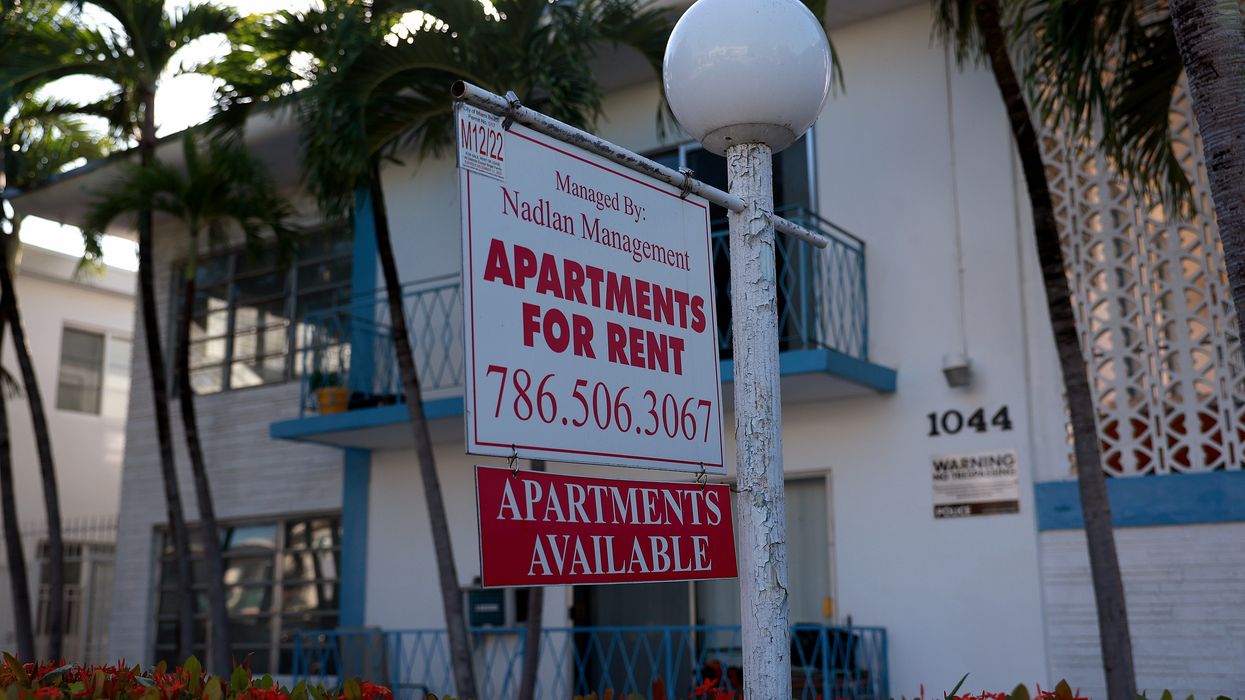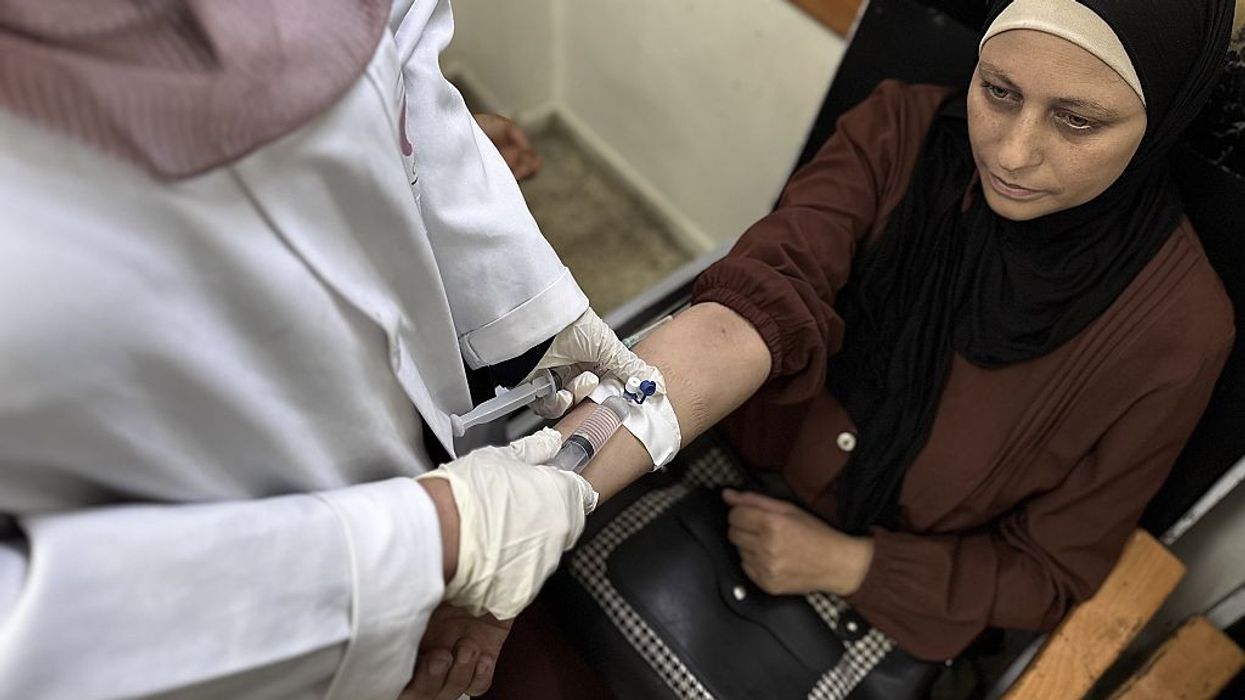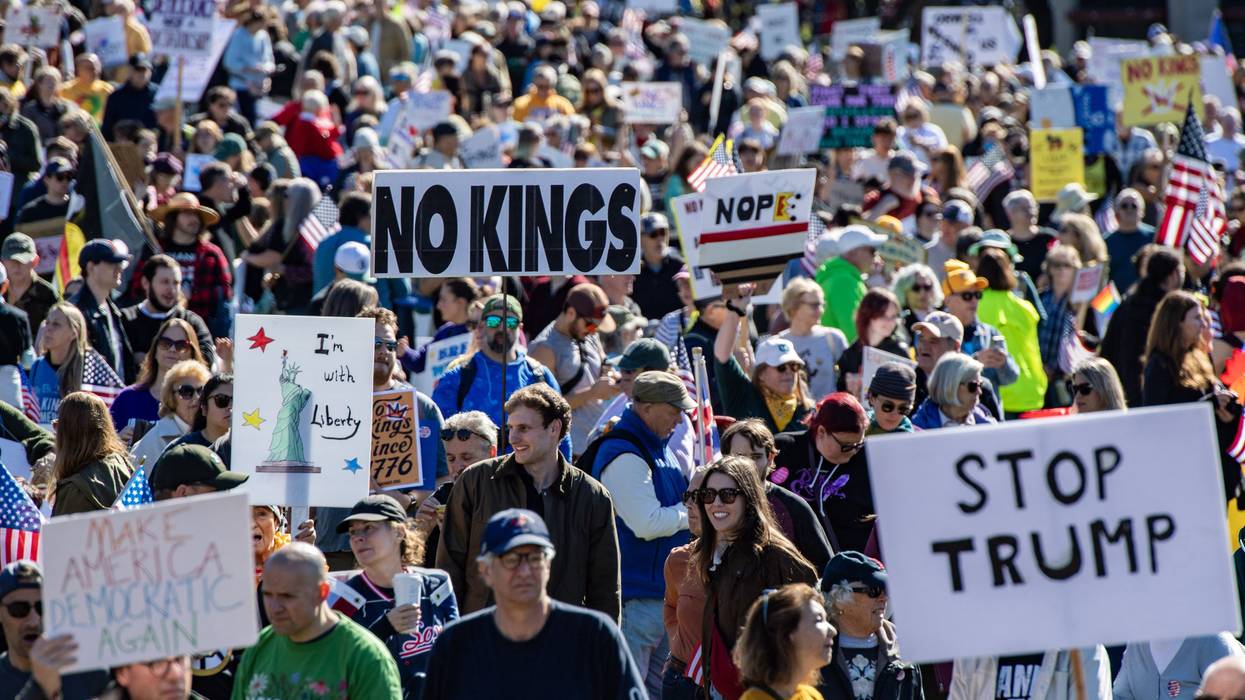We're Renting Our Lives Away to Enrich Tech Lords and Wall Street Oligarchs
In the new, out-of-control rental economy, the product is often just bait. The real commodity, the real profit center, the real source of unending corporate cash flow is you.
On Sunday, both President Donald Trump and his secretary of Housing and Urban Development told us that 50-year home mortgages may soon be a thing. While seemingly insane (you could end up paying more than three times the cost of the house and never escape the burden of debt before you die), this is just the latest iteration of one of American businesses’ most profitable scams: the rental economy.
It’s a growing threat to the American middle class that rarely gets named, even as it reshapes our lives every day. Over the past two decades, it’s snuck in quietly, disguised as convenience, efficiency, and “innovation.”
As a result, nothing is “ours” any more. Instead, we’re renting our lives away.
There was a time when you bought things.
It’s become a never-ending extraction of money and personal data from each of us, every month, every year, time after time, over and over again until we’re financially exhausted.
You bought a house, a book, a record, a car, a word processing program. You paid once, took it home or lived in it, and it was yours. If the company went out of business, your stereo still worked. If the manufacturer didn’t get their annual payment, your computer didn’t lock you out of your own words. You could read books on your phone or pad without an internet connection to “confirm your purchase.”
That America is disappearing.
Today, almost everything that used to be a purchase has become a rental.
Take Microsoft Word. Decades ago, you bought it once and used it for years. Now it’s a monthly fee. Stop paying, and you may not even be able to open documents you wrote yourself. Adobe did the same thing. So did music, movies, and television. At first, it felt like convenience; a few dollars a month didn’t seem like a big deal.
Even the latest versions of the two major computer operating systems are essentially spyware, constantly tracking everything you do while demanding that you put all your personal information on their “cloud” servers.
Instead of buying homes, people are renting because, in part, massive New York hedge funds and foreign investors are purchasing as many as half of all the homes that come available for sale in some communities, and then flipping them into rentals. Renters can end up on the hook for their entire lives.
Even the means to get a good job—a college education—has become something you must pay for over a period of decades or even a lifetime instead of the pay-as-you-go model my generation had before Ronald Reagan gutted federal aid to higher ed. We now have almost $2 trillion in student debt—the only developed nation in the world that does this to its students—and I regularly get calls into my radio program from people in their 70s still paying off their student debt.
But this change was never really just about money. It has morphed over the past decades into a new form of corporate control over our lives and our wealth. It’s become a never-ending extraction of money and personal data from each of us, every month, every year, time after time, over and over again until we’re financially exhausted.
When you own something, you decide how it’s used. When you rent, someone else makes that choice. They can raise prices, change terms, remove features, track everything you do with it, or shut it off entirely. Your “choice” becomes compliance.
The billionaire Tech Bros and Wall Street are hoping we’ll all just roll over, sign up, and let them ding our credit cards until our dying day.
That same model has spread everywhere.
Cars used to be machines you owned. Now they’re rolling computers with features like heated seats, remote start, or performance upgrades locked behind monthly fees. Similarly, cars are increasingly leased instead of purchased. Miss your payment this month and the lender will remotely disable “your” vehicle. Your car doesn’t just take you places anymore: It reports on you.
Phones are even worse. They’re not just devices; they’re gatekeepers. Apps can be removed. Accounts can be banned. Services can disappear overnight. And because so much of modern life runs through that phone—banking, work, navigation, healthcare—being cut off isn’t an inconvenience. It’s a functional exclusion from society.
This extends from major things like our cars and homes to simple things like apps. Louise loves to play Scrabble on her phone, and would gladly pay a one-time fee for an app that doesn’t throw ads at her, track and sell her information, or demand constant interaction. Instead, since the old Scrabble app she’s used for years went to a rental model, she’s gone through a half-dozen apps, each worse than the last at demanding her interactions or throwing ads.
And to add insult to injury, layered on top of this rental business model is a vast, multibillion-dollar industry harvesting our personal information.
Every website you visit. Every app you download. Every product you register just to make it work. Your location, habits, preferences, relationships, and even emotional responses are tracked, analyzed, packaged, and sold. Most often without meaningful consent, and almost always without real alternatives.
This is not how American capitalism worked for over 250 years.
The question business leaders used to ask was simple: “What unmet needs do people have that our company can satisfy with a new product or service?” You built something useful, people bought it, and that was the deal.
Today, the question has changed: “How do we make our product so essential that people can’t function without it, then crush or buy out our competitors so there’s no real consumer choice, then charge a monthly fee forever, all while extracting user data we can sell for even more profit?”
That’s not innovation. It’s parasitism.
If everything we touch is leased, freedom is just another fee.
In this model, the product is often just bait. The real commodity, the real profit center, the real source of unending corporate cash flow is you.
And because the billionaire “Tech Bros” and Wall Street oligarchs control the products, the data, and increasingly our nation’s news and social media, they also control the content and algorithms that shape public opinion.
As a result, social media and even our news (think CBS, the Washington Post, the LA Times, Fox “News”) increasingly doesn’t just reflect reality, they engineer it to get us to think of this new rental economy as normal, as innovative, as The Way Things Should Be.
In addition to profitably amplifying outrage, profitably distorting truth, and polishing the public image of this new rental economy—all to create billions in ongoing month-after-month profits—America’s billionaire tech lords and the right-wing politicians they bankroll (thanks to five corrupt Republicans on the Supreme Court) are manufacturing our consent (to apply Noam Chomsky’s phrase).
Thomas Jefferson warned that people are inclined to suffer evils while they are sufferable rather than abolish the forms to which they’ve grown accustomed. The billionaire Tech Bros and Wall Street are hoping we’ll all just roll over, sign up, and let them ding our credit cards until our dying day.
It’s gotten so bad that apps—which also acquire and then sell our data—have emerged that track our “subscriptions” so we can try to get it all under control. They’re advertising them on TV every day: Get this app to find out what apps are secretly extracting your cash because you long ago forgot you clicked on that link.
None of this was inevitable.
The solution is not to smash technology or retreat into the past. It’s for government to once again work for the 99% instead of the 1%. That means once again regulating money in politics, private equity, social media, data harvesting, and the out-of-control rental economy that has replaced ownership.
It means breaking monopolies, restoring regulatory independence, making education affordable, supporting home and car ownership, and reaffirming that democracy—not billionaires—sets the rules of the road.
Technology should serve human freedom, not manage it. Markets should reward service and quality of content, not extraction. People should be able to choose to pay or not to pay for things from apps to the functionality of your car or home’s HVAC system.
Nothing is ours any more. Not the road, not the floor. If everything we touch is leased, freedom is just another fee.
If we don’t act to regulate this out-of-control rental economy, we may one day realize we didn’t lose our wealth and even our democracy all at once: We simply rented our way out of it.



